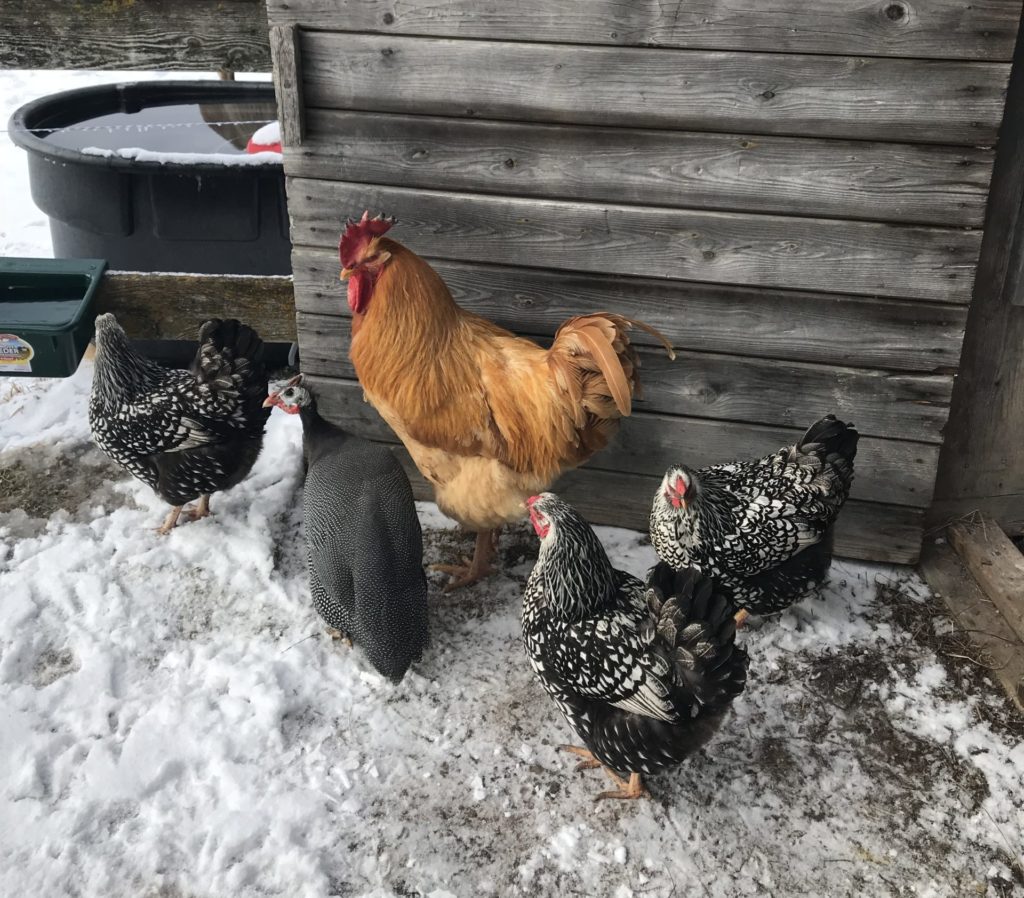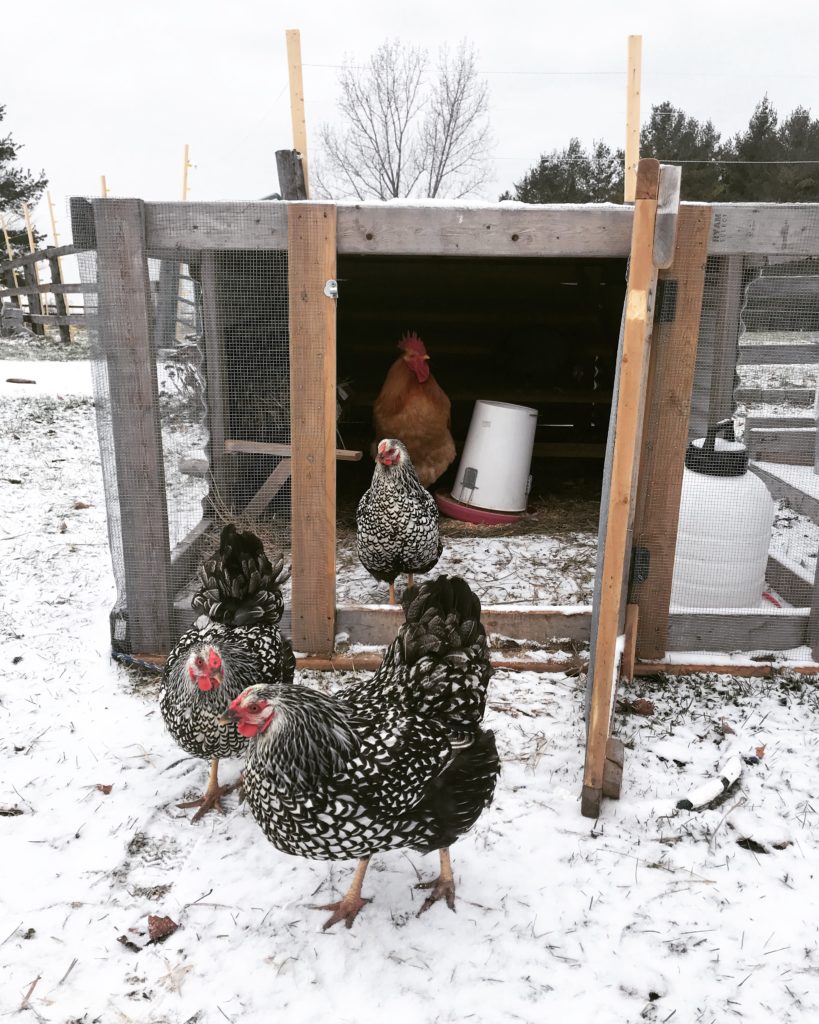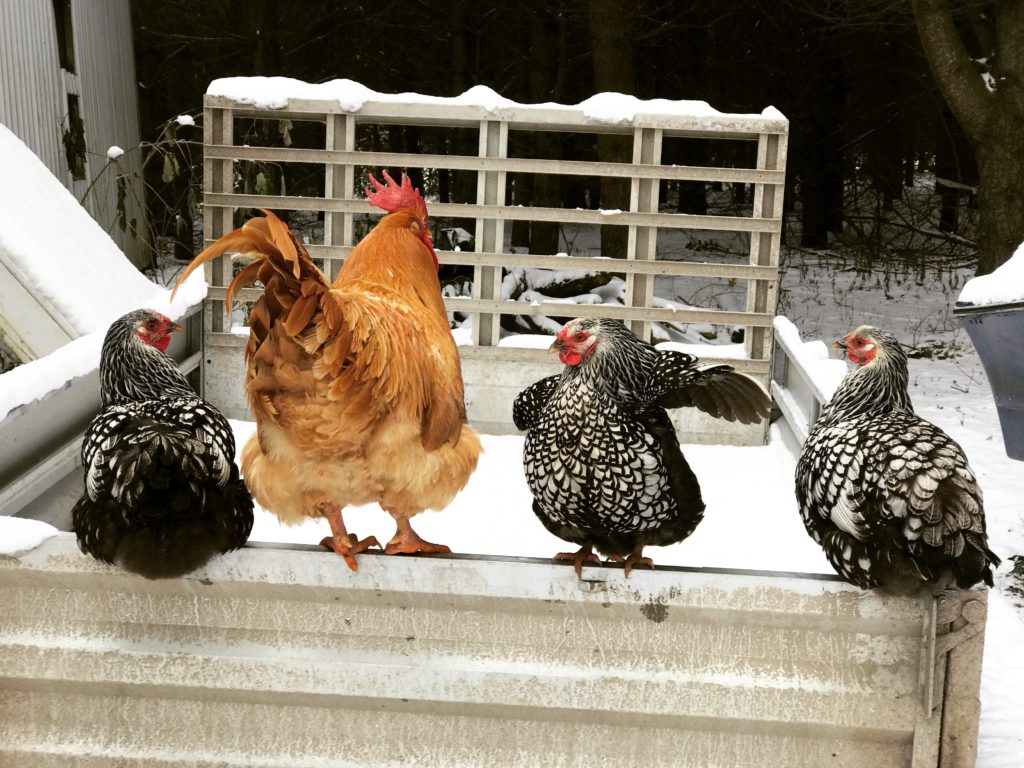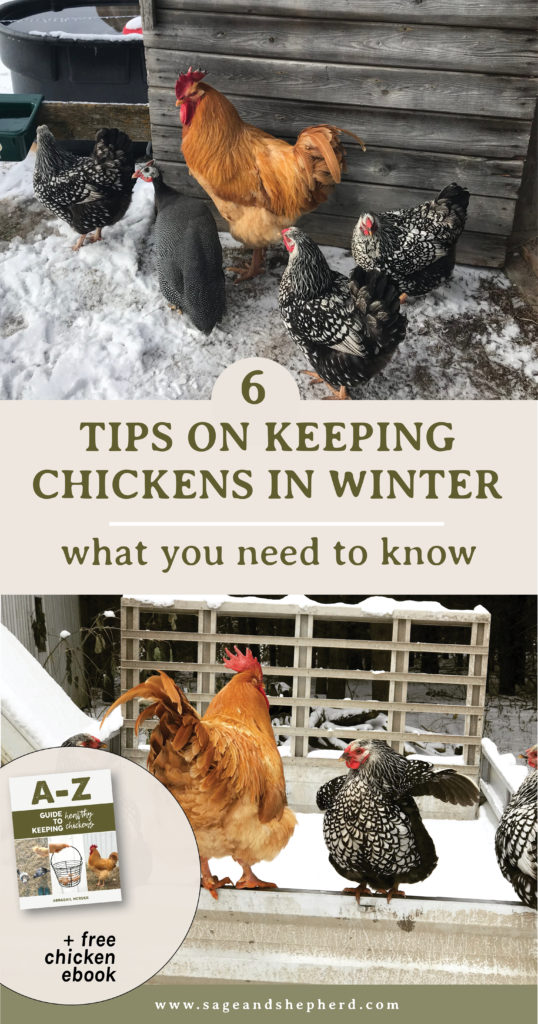They provide you with fresh, delicious eggs all summer long, and they entertain you – oh chickens, how we love you! Chickens are one of the easiest animals to raise on your homestead. And going into winter, it doesn’t change. Some people say winter chicken keeping has to be expensive and labour intensive, but in reality, it’s not much different than that of the summer chores! Here are 6 things to keep in mind when going into winter with your beloved chickens.

Keeping Chickens in the Winter
1. They Don’t Need A Heater!
I can imagine this causing big uproar in the homesteading community because I do see a lot of people add insulation and heat lamps to their coops – you just don’t need it. Not only does it cost more, but it’s also a fire risk, and it creates an ultra-warm environment inside the coop than when the birds do go outside the temperature change is much greater. Chickens also grow in their own winter feathers to keep them warm. Just an enclosed area away from the wind and snow, and something with an insulated bottom (and by the insulated bottom, I mean straw or pine shavings) and they will be fine!
2. Don’t Let That Water Freezer
Obviously, chickens still need access to fresh water and feed during the winter. I would invest in a heated waterer for the chickens to be put inside their coop. This will ensure nothing gets frozen and that your chickens can have fresh water whenever they want. You might want to consider giving them a treat now and then for those winter blues! Hanging cabbages, squash, or even some birdseed figures will keep them occupied.

3. They Need Outdoor Access
Yes, it will be cold out, but chickens will still need access to the outdoors, the real, raw outdoors! If you are using the Chickit Hutch (or any mobile coop) I would set up my electric netting now, while the ground isn’t frozen and make that their permanent run for the winter. Birds will still forage under the snow and scratch and peck around!
4. Ventilation is Key
Just like animal housing, ventilation is so important! Without proper ventilation, ammonia builds up, and animals are at risk for pneumonia. Make sure your coop is protected by the wind but will allow some breeze to get through.
5. Think About the Breed
Yes, there are certain breeds that are more tolerant of the cold than others. Take the Icelandic chicken, for example, it’s in their name! A lot of heritage breeds tend to be more cold hardy, such as Plymouth Rock, Ameraucana, Rhode Island Red, Australorps, Wyandotte, Speckled Sussex, and Orpingtons.
6. Roosts are Important
You probably already have them in your coop, but they are very important during the winter because that’s where your chickens will perch at night. Picture them all lined up, snuggling for body heat! You want to give the opportunity to create that body heat. Sometimes when we didn’t have our electric net up, our chickens would even go on adventures finding places to roost during the day!

Other Things to Watch Out For During the Winter
Egg Production
Since the sunlight decreases during the winter months, you will notice a drop in your egg production. You can use artificial lights to mimic sunlight, but then it doesn’t give your girls a break, and it’s not natural. The eggs they do lay will freeze. I suggest checking every night before the nightly temp drop.
Frostbite
Yes, chickens can get frostbite. One of our Orpington roosters got it, part of his comb turned black, and then it fell off in the spring. You can put a balm on their comb to help it, though it can be painful. We just let ours take its natural course. I would suggest getting breeds with small combs, thus preventing it altogether.
See, told you it was easy! I would love to know if you keep chickens in the winter, let me know in the comments below!
-Abbagail











Taking the simple step to choose the right chicken breed for your climate will work wonders to ensure that your chickens stay warm in the winter. We have raised practically every breed of chicken there is. What we have learned is chickens who are naturally thinner with very large combs truly suffer through the winter. Regardless of how hard we try to keep them warm, they struggle to thrive. Simply buying the right breeds from the start will save you a lot of misery down the road.